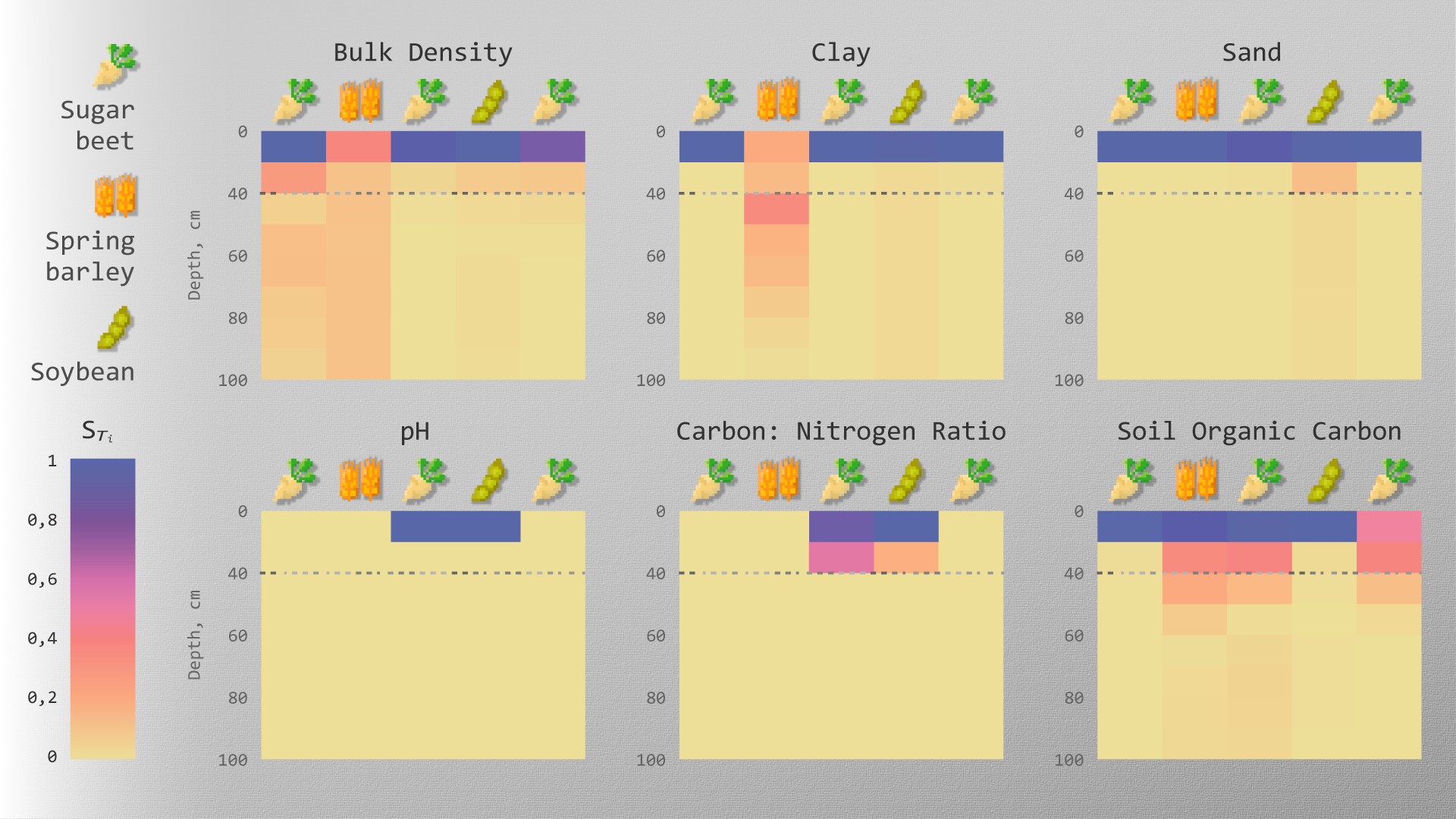Russian Federation
August 7, 2020
Nowadays, agriculture is going to become AI-native: Skoltech researchers have used the Zhores supercomputer to perform a very precise sensitivity analysis to reveal crucial parameters for different crop yield in the Chernozem region. Their paper was published in the proceedings of the International Conference on Computational Science 2020.
Farmers all over the world use digital crop models to predict crop yields; these models describe soil processes, climate and crop properties and require environmental and agricultural management input data to calibrate them and improve the forecasts. In some countries, however, agrochemical data is not freely available for users of these models, and this calibration can become expensive and time-consuming.

A heatmap of the impact of key soil parameters on yield. Credit: Pavel Odinev / Skoltech
A Skoltech team led by full professor Ivan Oseledets and assistant professor Maria Pukalchik used one of the popular open-source process-based model called MONICA and figured out a way to reveal only the most important parameters for crop yield based on historical data and process-modelling. Moreover, they sped up computational efficiency from one simulation per day to half a million model simulations per hour using Zhores, the flagship Skoltech supercomputer.
This stunning amount of simulations is necessary to perform high-quality sensitivity analysis that helps determine how the changes in certain input factors (such as soil parameters or fertilizer) influenced the output crop yield prediction.
The research team used field data from an experiment in the Russian chernozem region, with seasonal crop-rotation of sugar beet (Beta vulgaris), spring barley (Hordeum vulgare) and soybean (Glycine max) observed from 2011 to 2017. They picked six main soil parameters for sensitivity analysis and performed what’s called Sobol sensitivity analysis (named after Ilya Sobol, a Russian mathematician who proposed it in 2001).
“Soil is a very complicated issue in this country. Unfortunately, the data about soil properties and crop yield are not published. We have found an opportunity to overcome this barrier and set up the Zhores supercomputer to solve this issue. Now we can simulate all possible variants and reveal the most crucial parameters without time-consuming and costly work. We hope that our achievements will help farmers digitalize their crop growth,” said Maria Pukalchik.